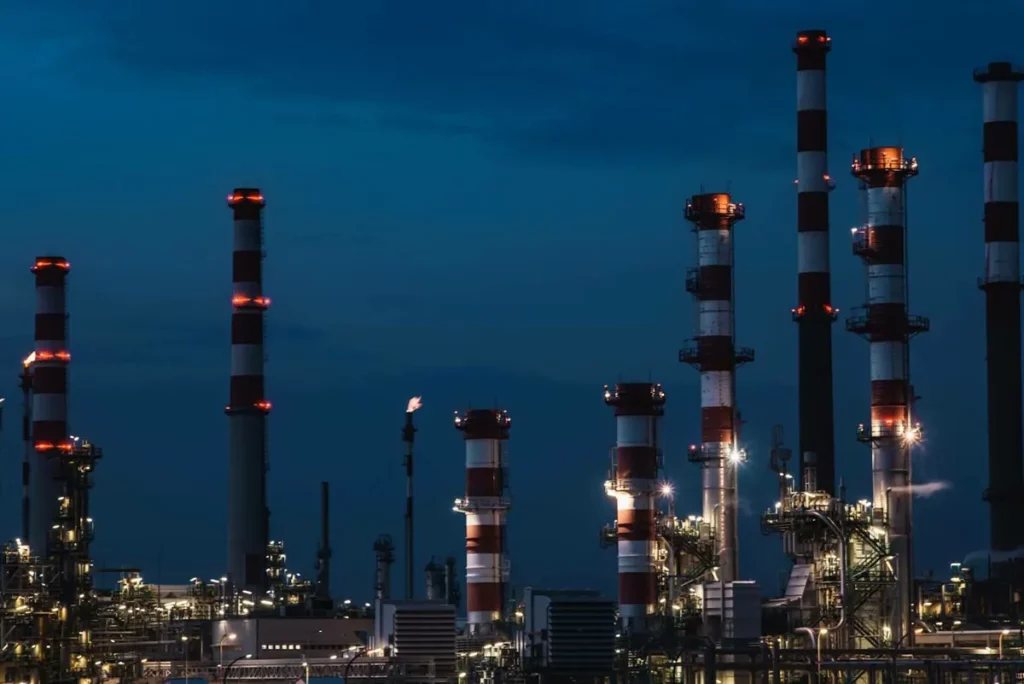Climate change profoundly impacts daily life in every country worldwide. According to WEF’s Innovation and Adaptation in the Climate Crisis report, in 2022, natural disasters alone cost governments and businesses over $200 billion – 40% greater than the annual average for the past 20 years. So, governments and corporations must lead the way in taking necessary steps to cut global greenhouse gas (GHG) emissions so we can all move closer to Net Zero, particularly in high-emission generating sectors like manufacturing.
In manufacturing, more companies have committed to improving their sustainability efforts in recent years, and several nations have committed to Net Zero by 2050. But for these initiatives to be successful, companies need to bear in mind the compliance standards surrounding environmental, corporate, and governance (ESG) and how they can consistently meet those standards.
Some of the globally-recognised ESG standards to date include the Science Based Targets initiative (SBTi), Global Reporting Initiative (GRI), Sustainability Accounting Standards Board (SASB), Task Force on Climate-related Financial Disclosures (TCFD), and International Organization for Standardization (ISO). Governments worldwide have also implemented stringent environmental laws and compliance standards to ensure sustainable and responsible manufacturing practices, including measures to combat greenwashing.
However, achieving environmental compliance comes with its own set of challenges. For instance, manufacturers struggle to keep up with evolving environmental policies and find it challenging to monitor and reduce their environmental impact while maintaining efficient operations. Hence, technology plays a crucial role in simplifying environmental compliance in manufacturing.
Technologies for environmental compliance
By harnessing the power of modern technology and new intelligent sustainability solutions, manufacturers can meet environmental compliance standards and achieve more sustainable and environmentally friendly operations – the ultimate goal for the industry.
From advanced monitoring systems to innovative production processes, there is now a more comprehensive range of tech solutions to help manufacturers meet or exceed environmental compliance standards. Such solutions have significantly reduced waste and improved cost savings and operational efficiencies.
Some current technologies used for environmental compliance in manufacturing include increased automation, using IoT and data analytics for monitoring and renewable energy solutions. By tapping these smart technologies, manufacturers can track and minimise their environmental footprint while ensuring compliance with environmental laws and regulations. Let’s discuss them further.
Automation for reducing environmental impact
Automation plays a significant role in reducing the environmental impact of manufacturing operations. From robotic process automation (RPA) to AI and machine learning, manufacturers can experience time and cost savings and access vital metrics. This allows them to optimise resource usage, minimise waste, and improve energy efficiency, enabling them to easily meet environmental compliance standards.
IoT and data analytics for monitoring and optimising resource usage
The Internet of Things (IoT) and data analytics have empowered manufacturers with real-time monitoring capabilities and deeper insights. By using various sensors and connected devices, manufacturers can collect and analyse data in more detail and identify areas for improvement so they can make informed decisions to reduce their environmental impact.
Take the example of IBM and the Saudi Data and Artificial Intelligence Authority. The two entities reached an agreement to capture and reduce carbon emissions across industries. As a part of this agreement, IBM worked with the Water Transmissions and Technologies Co., a leading water transmission company, to automate over 175 of its business processes. In this case, AI-driven analytics is used to monitor energy consumption and improve compliance.
Renewable energy solutions for reducing the manufacturing carbon footprint
Adopting renewable energy sources such as solar and wind power can significantly reduce the carbon footprint of factories and manufacturing operations. By integrating renewable energy solutions into their operations, manufacturers can not only meet environmental compliance but also take proactive steps towards a Net Zero future.
Future tech trends in environmental compliance
While environmental compliance may be tricky to navigate as regulations constantly evolve, emerging and cutting-edge technologies like generative AI can aid manufacturers in hitting their environmental compliance targets, enabling them to commit to greener production processes and smarter raw materials management.
For example, if a company needs to build a plant but lacks location information and other ecological impact data, the company can use generative AI to collect aerial footage and analyse it with available data repositories: The better the data and insights, the higher the compliance with environmental laws and regulations.
These technologies will only grow more intelligent and will have the potential to revolutionise sustainable manufacturing practices. For instance, manufacturers can expect pre-emptive risk detection much earlier, prompting them to take necessary action to maintain compliance before it’s too late.
Where to start in achieving environmental compliance
To get your sustainability standards to the next level, manufacturers need to know what to assess and measure so they can understand what needs to be changed and what additional technologies, if any, are required. After all, if processes cannot be measured, they cannot be improved. That’s why it’s critical to take advantage of neutral and objective maturity assessments and frameworks like the Consumer Sustainability Industry Readiness Index (COSIRI).
With COSIRI, manufacturers are empowered to understand their current sustainability levels and how to improve them as they gain access to comprehensive metrics across companies, industries, and geographies and actionable insights that allow them to scale their sustainable transformation in line with existing corporate strategies and emissions reduction targets. COSIRI assessments will also help you:
- Meet global ESG standards · Assess your current environmental impact and compliance status (using objective benchmarks and tools)
- Identify the most suitable technologies based on your specific needs and challenges
- Continuously monitor and evaluate the performance of the implemented technologies to make necessary adjustments and improvements
To learn more about how COSIRI can help you with environmental compliance and sustainability transformation, visit INCIT.org or contact us at [email protected] to start a conversation.



